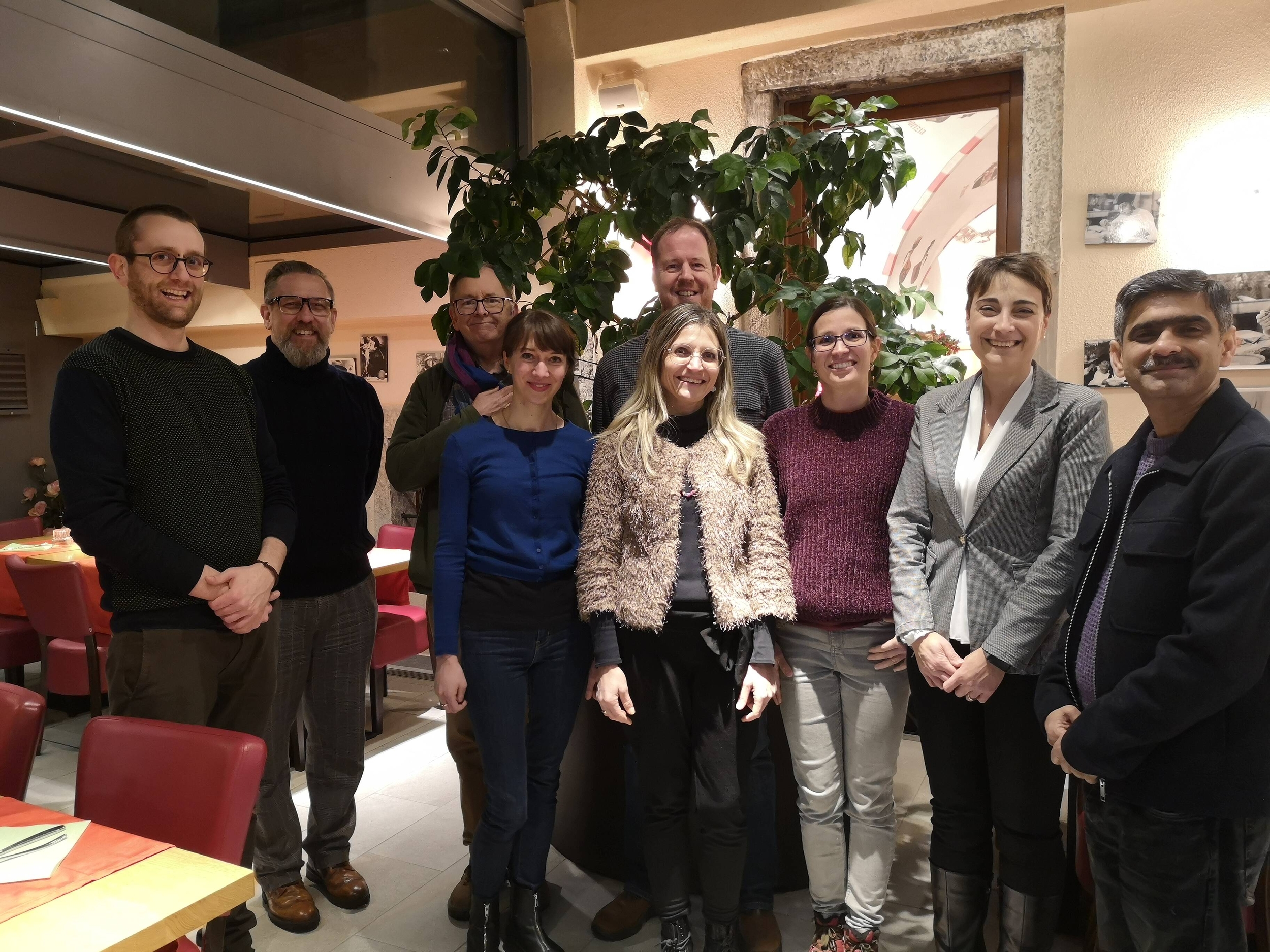The January meeting of the laboratory group of the FORESFA project (Forensic epidemiology and impact of substandard and falsified antimicrobials on public health) in Trentino in north-eastern Italy has almost become a tradition, and so the team gathered there again this year from 15 to 18 January. Group members arrived from Oxford, Edinburgh, London and Vienna for an interactive two-day workshop, hosted by the Research and Innovation Centre of the Fondazione Edmund Mach (FEM), renowned for its wine academy and agrarian institution. As part of the ongoing project funded by the Wellcome Collaborative Award, the FEM is conducting isotope ratio mass spectroscopy (IRMS) of falsified medicines in its laboratories.
One of the aims of the workshop was to advance the laboratory analysis of simulated samples of known composition and origin, specifically produced for the project in Huddersfield and Bangkok (MORU). These samples are crucial for the development and validation of forensic techniques, including genomic, chemical and isotopic analyses.
Methods previously used to investigate wildlife trade and food adulteration are being used to unravel the ‘pharmabiome’ and chemical spectra of falsified medical products.
The challenges related to data integration within the three participating laboratories were discussed during the workshop, as well as the collaboration with external experts that will expand the scope and impact of the project.
The group agreed on a workflow for the coming months and on the first pilot analysis of falsified samples that will provide an interesting case study on forensic analysis of falsified medical products.
The workshop in Trentino built on the success of previous FORESFA meetings in Oxford and Edinburgh, where team members of the international collaborative project discussed how to identify sources and trade routes of substandard and falsified antimicrobials using innovative forensic tools and social network analysis.

